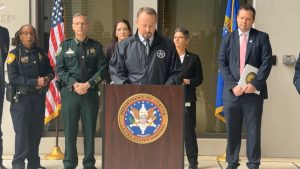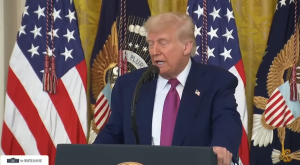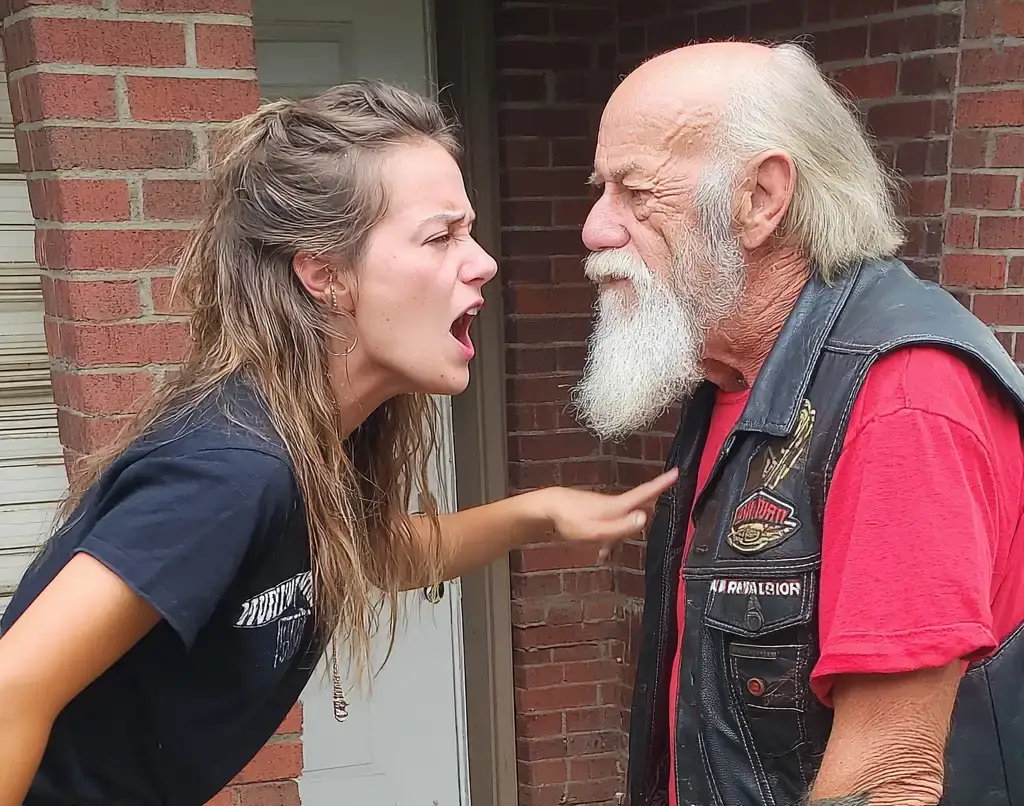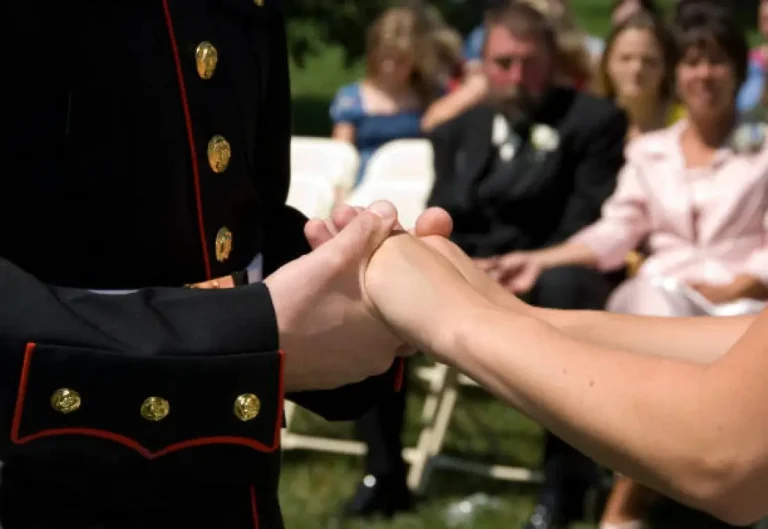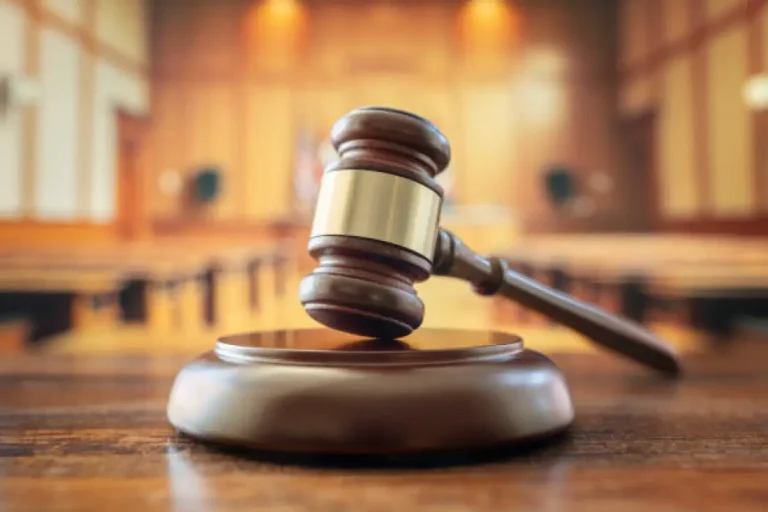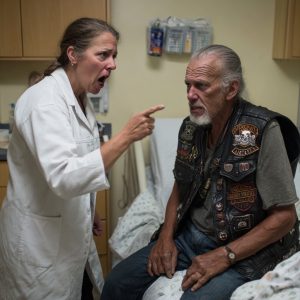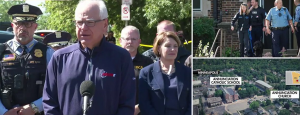The Harley-Riding Father I Misjudged: A Story of Hidden Love and Lost Time
Sometimes the people we think we know best are the ones hiding the deepest truths. This is the story of a daughter who spent decades hating her biker father, only to discover after his death that everything she believed about him was wrong.
The Call That Changed Nothing
The phone rang at 11:47 PM on a Tuesday. I knew it would be bad news—calls at that hour always are. What I didn’t expect was how little I would care.
“Ma’am, this is Officer Martinez with the State Police. I’m calling about Thomas Morrison. There’s been an accident.”
My father. The man I’d spent twenty-three years trying to forget existed.
“Is he dead?” I asked, surprising myself with how matter-of-fact I sounded.
“Yes, ma’am. His motorcycle hit a guardrail on Route 9. We need family confirmation for identification.”
“Find someone else.”
“You’re listed as his emergency contact. You’re his only—”
I hung up the phone and went back to feeding my three-week-old son. My husband Mike was deployed overseas, and I had more pressing concerns than a father who’d never been there for me anyway.
But the calls kept coming. Different officers, same request. The man who’d chosen his Harley-Davidson over parent-teacher conferences, who’d missed my high school graduation for a poker run, who’d been banned from my wedding at my own request—somehow I was still the person they called when he died.
When the Club Came Calling
Three days after I’d refused to claim his body, a mountain of a man appeared at my front door. Tank Williams, my father’s riding partner, stood there in his leather vest and steel-toed boots, looking exactly like every stereotype I’d spent my life running from.
“Sarah, your dad’s gone,” he said, his voice gentler than his appearance suggested.
“I know. And I don’t care.”
Tank’s weathered face showed no judgment, only sadness. “We need you to identify him officially. There’s no one else, girl.”
The truth of that statement hit harder than I expected. My mother had abandoned us when I was three. No siblings. No aunts or uncles who cared enough to maintain contact. Just me and the ghost of a man who’d thundered through my childhood on two wheels, leaving embarrassment and disappointment in his wake.
“Fine,” I said, grabbing my keys. “Let’s get this over with.”
The Face of a Stranger
The county morgue smelled like disinfectant and death. The medical examiner, a kind-faced woman in her fifties, led us to the viewing room with practiced sympathy.
“Take your time,” she said, pulling back the white sheet.
There he was. Thomas “Rider” Morrison, 62 years old, looking smaller than I remembered. The scar above his left eye from a bar fight when I was seven. The crooked nose from another altercation when I was twelve. The gray beard I’d begged him to trim before my high school graduation—the one he’d attended anyway, standing in the back parking lot because I’d told him not to come inside.
“Is this your father?” the examiner asked.
“Yes,” I said. No emotion. No tears. Just confirmation that the man who’d failed me for two decades was finally, permanently gone.
Tank drove me home in his rumbling pickup truck, the silence heavy between us. At my door, he handed me a single key attached to a Harley-Davidson keychain.
“His apartment needs to be cleared out,” he said. “Landlord’s giving us two weeks.”
“Burn it all,” I replied. “I don’t want anything that belonged to him.”
Tank’s blue eyes—the same shade as my father’s—studied my face with concern. “Sarah, your dad loved you more than—”
“Don’t.” I snatched the key from his hand. “Just don’t say that to me.”
The Apartment That Broke My Heart
Two weeks passed before I finally drove to my father’s apartment. Not because I wanted to, but because the landlord had started making threats about disposing of everything himself.
The place was exactly what I expected from Tom Morrison. Empty beer cans scattered across a coffee table that hadn’t been cleared in months. Motorcycle magazines stacked floor to ceiling. The smell of motor oil and stale cigarettes embedded in every surface. A shrine to everything I’d learned to hate about him.
I started throwing items into garbage bags with the fury of twenty-three years of resentment. Old work clothes stained with grease. Broken motorcycle parts. Empty whiskey bottles. Every item confirmed what I’d always believed—that he’d prioritized his vices over his responsibilities.
The bedroom was worse. Harley-Davidson posters covered every wall. The bed hadn’t been made in what looked like months. More evidence of the selfish, immature man who’d raised me by accident rather than design.
Then I noticed his old helmet on the closet shelf. Black with a skull painted on the side—the same one he’d worn since before I was born. He’d let me try it on once when I was five, before I’d learned to be ashamed of what it represented.
Something rattled inside when I lifted it down. A wooden box had been wedged into the helmet’s interior, wrapped carefully in an old bandana.
My hands trembled as I opened it.
The Discovery That Changed Everything
Inside that box was my entire childhood, preserved with the care of a museum curator.
My kindergarten report card sat on top. “Sarah is a delight to have in class,” Mrs. Henderson had written in her neat teacher’s script. “She’s kind to everyone and shows exceptional promise.”
Beneath it, my first-grade school photo—gap-toothed smile, pigtails my mother had styled before she left us both. Then second grade. Third. Fourth. Every single school photo, arranged chronologically.
Every report card I’d ever received. Honor roll certificates. Perfect attendance awards. My National Honor Society invitation from junior year. The acceptance letter from State University that I thought he’d never seen.
He’d kept everything. Every achievement, every milestone, every small success from a daughter who’d grown up believing he didn’t care enough to notice.
But it was what lay beneath the school memorabilia that destroyed me completely.
Receipts. Hundreds of them, organized by year in neat rubber-banded stacks.
“Miller’s Dance Studio – Annual Tuition $1,200 – Sarah Morrison, Ages 7-10”
My heart stopped. I’d taken dance lessons for four years, believing my maternal grandparents were paying for them. My father had told me they were a gift from “people who cared about my dreams.”
Another receipt: “Dr. James Orthodontics – Payment Plan Total $5,000 – Sarah Morrison braces, Ages 13-15”
The braces I’d assumed came from my grandparents’ insurance. The perfect smile I’d taken for granted.
“Morrison Music Academy – Piano Lessons $150/month – Sarah Morrison, Ages 8-12”
“Camp Wildwood Summer Program – $2,800 – Sarah Morrison, Age 14”
“State University Housing Deposit – $2,500 – Sarah Morrison”
“Miller’s Formal Wear – Senior Prom Dress $400 – Sarah Morrison”
“Something Blue Bridal – Wedding Dress $1,800 – Sarah Morrison”
Every opportunity I’d had growing up. Every lesson, every camp, every experience that had shaped me into the person I’d become. All paid for by the man I’d convinced myself didn’t care enough to contribute anything meaningful to my life.
I sank to the floor of his cluttered bedroom, surrounded by evidence of a love I’d been too blind to see.
At the bottom of the box was an envelope marked “For Sarah” in his terrible handwriting.
The Letter That Broke Me
Inside was a single piece of notebook paper, the kind he’d always used for grocery lists and phone messages:
Sarah,
I know you hate me. I know why. I wasn’t the father you deserved. I drank too much, fought too much, embarrassed you too much. I made mistakes that hurt you, and I’m sorry.
But I need you to know that everything I did, I did for you. Every extra shift at the garage. Every weekend side job. Every poker game I won (and yes, I counted cards—don’t tell anyone). All of it was for you.
Your grandparents said you’d be better off not knowing the money came from me. They said you’d refuse help if you knew it was from your old man. They were probably right. You always were too proud and stubborn—you get that from me.
I stayed away from your wedding like you asked. But I was there, baby girl. Across the street in the parking lot, watching through the church windows. You looked just like your mother in that dress. Beautiful and strong and everything good in this world.
I’m proud of you. Always have been. You became everything I hoped you would, despite having me for a father.
I know I’m not good at words, and I know this letter is probably twenty years too late. But I wanted you to know that you were never alone. Even when you thought I wasn’t paying attention, I was watching. Even when you told me to stay away, I was nearby.
I love you, Sarah. I always have.
Ride free, Dad
The date on the letter was three weeks before he died. Three weeks before that 2 AM phone call, he’d known somehow that his time was running short.
The Truth About That Final Night
Through tears that felt like they might never stop, I called Tank. When he answered, I could barely speak through my sobbing.
“I found the letter,” I managed. “I found everything. Tank, where was he going that night? Where was he going at 2 AM?”
Silence stretched across the phone line. Then, quietly: “Sarah—”
“Where was he going?” I demanded.
“The hospital, girl. You were in labor. Your neighbor Mrs. Chen called him when she saw the ambulance. Said you were alone because Mike was deployed. Said you looked scared.”
The words hit me like a physical blow. My son had been born at 3:17 AM after a difficult labor that had started the night before. My father had died at 2:15 AM, just sixty miles from the hospital.
He was coming to me. After I’d banned him from my life, after I’d hidden my pregnancy from him, after years of telling him I never wanted to see him again—he was racing through the night to be there when I needed him most.
“How did Mrs. Chen even have his number?” I whispered.
“Your dad checked on you every day, Sarah. Rode by your house every morning at 5 AM before his shift started. Had half the neighborhood watching out for you without you knowing it.”
The early morning motorcycle sound that sometimes woke the baby. The one I’d complained about to Mike in my letters. That had been my father, making sure I was safe before starting each day.
“There’s more you need to see,” Tank said gently. “At the clubhouse. It’ll help you understand.”
The Shrine I Never Knew Existed
The Iron Riders Motorcycle Club wasn’t what I’d expected. Yes, it was dark and smoky, filled with leather and chrome and the kind of men I’d spent my life avoiding. But the moment Tank led me to the back wall, my preconceptions crumbled.
The entire wall was covered with photographs of me.
My college graduation, taken from a distance with a telephoto lens. My first day teaching at Lincoln Elementary, captured as I walked to my car. My wedding photos—not just the ceremony he’d watched from across the street, but candid shots from the reception. Me pregnant, photographed secretly during my grocery shopping trips.
Hundreds of photos spanning decades, documenting a life he’d been forbidden to participate in but had never stopped following.
“He called it his Sarah wall,” Tank explained, his voice thick with emotion. “Used to spend hours here, telling anyone who’d listen about his daughter the teacher. The brothers got sick of hearing about your achievements, but they never complained because they could see how much it meant to him.”
A grizzled biker I didn’t recognize approached us. Deep scars marked his face, and he walked with a pronounced limp.
“You’re Rider’s girl?” he asked.
I nodded, unable to speak.
“Name’s Bull Martinez. Your father saved my life in Desert Storm. Carried me two miles through enemy territory after I caught shrapnel. I wouldn’t have made it home to my kids without him.” He pulled out a worn wallet and extracted a check. “This is for your boy. For college.”
The check was for $10,000.
Before I could respond, another biker stepped forward. Then another. For the next two hours, members of the Iron Riders lined up to share stories about my father and press envelopes into my hands.
The veteran he’d driven to chemo appointments every week for six months. The single mother whose rent he’d paid when she lost her job. The teenager he’d mentored away from gangs and drugs. The elderly neighbor whose groceries he’d delivered during the pandemic.
Each story came with a contribution to what they called “The Tom Morrison Memorial College Fund”—money they’d been setting aside monthly for the grandson he’d never met but loved completely.
By the end of the evening, I held over $50,000 and a completely different understanding of who my father had been.
The Funeral That Opened My Eyes
Three hundred motorcycles showed up for Tom Morrison’s funeral. The sound of their engines created a thunder that shook the entire cemetery, a final tribute to a man who’d lived his life on two wheels.
I stood at his graveside holding my three-week-old son, surrounded by the leather-clad family my father had chosen when his biological family pushed him away. These rough-looking men and women who’d embraced a broken mechanic and helped him become something better than his circumstances.
“His name is Thomas,” I whispered to the headstone through fresh tears. “Thomas Michael Morrison-Davies. After you, Dad.”
The bikers revved their engines one final time, the sound echoing off the mountains in a roar of respect and farewell. It was fierce and proud and free—everything my father had been, everything I’d been too prejudiced to appreciate.
Tank approached me after the ceremony, carrying something I recognized. My father’s riding vest, worn leather adorned with patches from decades of brotherhood and charity rides.
“He wanted you to have this,” Tank said simply.
I held it to my face, breathing in the scent of cigarettes and motor oil and leather. It smelled like home. Like safety. Like a love I’d been too stubborn to acknowledge.
“I’m sorry, Dad,” I whispered. “I’m so sorry I never saw who you really were.”
My son reached tiny fingers toward the vest, grasping at the colorful patches with curiosity rather than judgment. He smiled—and in that moment, I swear I saw my father’s face looking back at me.
Learning to Ride
Six months later, I walked into Davidson’s Motorcycle Training Center and signed up for beginner lessons. Nothing dramatic—just a small Honda Rebel 300, perfect for a new rider who needed to understand what had been so important to the man she’d misjudged.
The first time I felt the vibration of the engine between my legs, the first time I leaned into a curve and felt the freedom my father had tried to share with me, I understood something I’d never grasped before.
It wasn’t about the bike. It had never been about the bike.
It was about community. About brotherhood. About finding your tribe among people who understood that sometimes the best families are the ones you choose rather than the ones you’re born into.
Every Sunday now, I ride past Greenwood Cemetery where my father rests. I park my bike next to his grave and tell him about his grandson’s latest milestones. About how I’m learning to see the world through different eyes.
I see him now in every biker I encounter on the road. In the way they wave at each other—a simple gesture of recognition and respect. In the way they stop for broken-down motorists. In the way they organize charity rides for children’s hospitals and veterans’ organizations.
I see him in Tank, who still checks on us every week, bringing groceries when I’m overwhelmed and fixing things around the house without being asked. In the Iron Riders who made sure a widow and baby never went without, who painted my nursery and built a playground in my backyard.
I see him in the values he tried to teach me that I was too angry to learn: loyalty, sacrifice, putting family first even when family doesn’t appreciate it.
The Legacy of Hidden Love
My father wasn’t perfect. He drank too much after my mother left. He solved problems with his fists when words would have been better. He was rough around the edges in a world that rewarded polish and sophistication.
But he loved me with a fierceness I only understand now that I’m a parent myself. A love that worked three jobs to fund my dreams while living in poverty. A love that stayed in the shadows so I could shine in the light of respectability.
A love that attended every important moment of my life from a distance, never demanding recognition or gratitude.
Being a biker wasn’t what made him miss school events—working overtime to pay for my education was. Being a biker wasn’t what made him seem distant and disconnected—protecting me from harsh realities I wasn’t ready for was.
The morning he died, he was racing through the darkness to hold his grandson for the first time. He died knowing I hated him, but loving me anyway—the kind of unconditional love that parents give and children too often fail to recognize until it’s gone.
A Daughter’s Redemption
Thomas Morrison died when his Harley hit a guardrail at 2:15 AM on a Tuesday night in October. He died trying to reach his daughter and grandson when they needed him most. He died believing his child was ashamed of him.
He died wrong.
I spent twenty-three years hating my father for being a biker. I’ll spend the rest of my life honoring him for the man he was behind the leather and chrome—a man who sacrificed everything for a daughter too proud to see his love.
Now when I hear the rumble of Harley engines, I don’t hear rebellion or recklessness. I hear community. I hear loyalty. I hear the sound of people who’ve found their place in the world and aren’t ashamed of it.
My son will grow up knowing his grandfather was a hero. Not in spite of being a biker, but because of the values that motorcycle community taught him: loyalty, sacrifice, putting family first, and loving without conditions.
It’s never too late to understand the people we think we know. Never too late to recognize love that came in forms we weren’t expecting. Never too late to honor the memory of someone who deserved better from us while they were alive.
Ride free, Dad. Your daughter finally gets it.
Your daughter is finally proud.
If this story moved you, please share it. Too many children grow up misunderstanding the sacrifices their parents make. Too many parents die believing their love wasn’t recognized or appreciated. Sometimes the people who look the scariest have the softest hearts. Sometimes they ride motorcycles. Sometimes they’re our fathers. And sometimes we don’t realize it until it’s too late—but it’s never too late for forgiveness, understanding, and love.

Emily Johnson is a critically acclaimed essayist and novelist known for her thought-provoking works centered on feminism, women’s rights, and modern relationships. Born and raised in Portland, Oregon, Emily grew up with a deep love of books, often spending her afternoons at her local library. She went on to study literature and gender studies at UCLA, where she became deeply involved in activism and began publishing essays in campus journals. Her debut essay collection, Voices Unbound, struck a chord with readers nationwide for its fearless exploration of gender dynamics, identity, and the challenges faced by women in contemporary society. Emily later transitioned into fiction, writing novels that balance compelling storytelling with social commentary. Her protagonists are often strong, multidimensional women navigating love, ambition, and the struggles of everyday life, making her a favorite among readers who crave authentic, relatable narratives. Critics praise her ability to merge personal intimacy with universal themes. Off the page, Emily is an advocate for women in publishing, leading workshops that encourage young female writers to embrace their voices. She lives in Seattle with her partner and two rescue cats, where she continues to write, teach, and inspire a new generation of storytellers.
